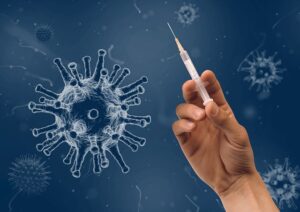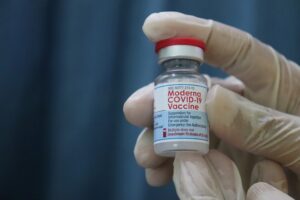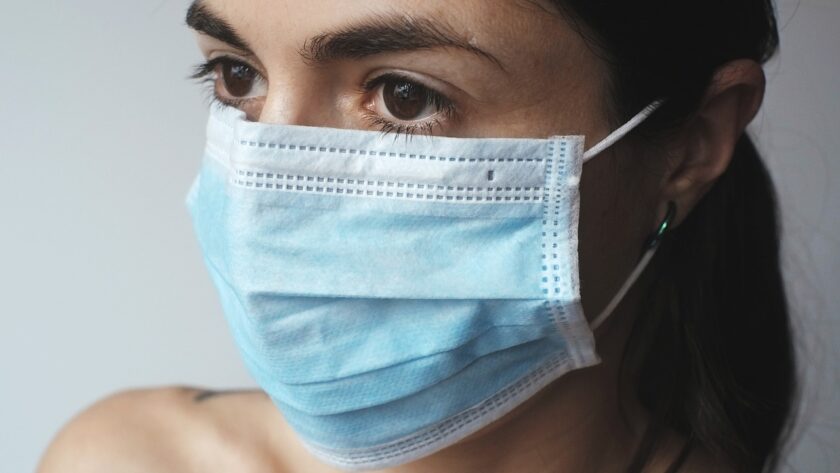Are you ready to separate fact from fiction and uncover the truth about COVID-19 vaccines? In this eye-opening blog post, we’re diving headfirst into the murky waters of misinformation surrounding these life-saving shots. It’s time to clear the air and dispel popular myths that have been spreading faster than wildfire.
From addressing concerns about side effects to debunking conspiracy theories, join us on this journey as we arm ourselves with knowledge and empower our communities in the fight against COVID-19. So buckle up, grab your metaphorical myth-busting hat, and let’s embark on a quest for truth together.
COVID-19 Vaccines Were Developed Too Quickly to Be Safe
 One prevailing myth is that the rapid development of COVID-19 vaccines compromises their safety. In truth, the speed at which vaccines were developed can be attributed to advancements in vaccine technology, global collaboration, and prioritizing resources.
One prevailing myth is that the rapid development of COVID-19 vaccines compromises their safety. In truth, the speed at which vaccines were developed can be attributed to advancements in vaccine technology, global collaboration, and prioritizing resources.
The vaccines underwent rigorous testing in large clinical trials, adhering to established safety protocols. Regulatory agencies, such as the FDA and EMA, conducted thorough reviews before granting Emergency Use Authorizations. So the next time you take covid tests, keep in mind that vaccines are safe.
COVID-19 Vaccines Alter DNA
Some individuals express concerns that the vaccines alter their DNA. COVID-19 vaccines, including mRNA vaccines like Pfizer-BioNTech and Moderna, work by instructing cells to produce a harmless piece of the virus’s spike protein. This protein triggers an immune response, but it does not integrate into or alter the recipient’s DNA. The mRNA used in these vaccines is temporary and degrades after its task is complete.
Natural Immunity Is Better Than Vaccine-Induced Immunity
While recovering from a COVID-19 infection may result in natural immunity, the risks associated with the disease, including severe illness and long-term complications, make vaccination a safer alternative. Vaccines undergo rigorous testing to ensure their safety and efficacy. Additionally, vaccine-induced immunity can be more consistent and controlled compared to natural immunity, which can vary widely from person to person.
COVID-19 Vaccines Cause Severe Side Effects
Concerns about severe side effects deter some individuals from getting vaccinated. The reality is that while mild side effects such as sore arms, fatigue, or mild fever can occur, severe reactions are extremely rare. The benefits of vaccination in preventing COVID-19 and its complications far outweigh the risks of potential side effects. Monitoring and reporting systems continuously evaluate vaccine safety, providing prompt responses to any emerging concerns. Vaccination significantly reduces the risk of severe illness and death from COVID-19, but it does not guarantee complete immunity or prevent infection. Breakthrough infections can occur, albeit at a much lower rate. As a result, public health guidelines, including mask-wearing and social distancing, may still be recommended, especially in high-risk settings or areas with increased transmission. Following these precautions helps protect both the vaccinated individual and those who are unvaccinated.
Natural Therapies or Immune Boosters Are Sufficient Protection
 While maintaining a healthy lifestyle can support overall well-being, relying solely on natural therapies or immune boosters is not a substitute for vaccination. COVID-19 vaccines undergo rigorous testing to ensure their effectiveness in preventing illness, hospitalization, and death.
While maintaining a healthy lifestyle can support overall well-being, relying solely on natural therapies or immune boosters is not a substitute for vaccination. COVID-19 vaccines undergo rigorous testing to ensure their effectiveness in preventing illness, hospitalization, and death.
Vaccination provides a targeted and specific immune response against the virus, offering the most robust protection against severe outcomes. Dispelling myths and misconceptions about COVID-19 vaccination are essential in promoting public health and achieving widespread immunity. By understanding the facts surrounding vaccine development, safety, and efficacy, individuals can make informed decisions about their health and contribute to the collective effort to end the pandemic. It is imperative to rely on reputable sources for information, consult healthcare professionals, and engage in open and informed discussions to address concerns and build confidence in the effectiveness and safety of COVID-19 vaccines.



